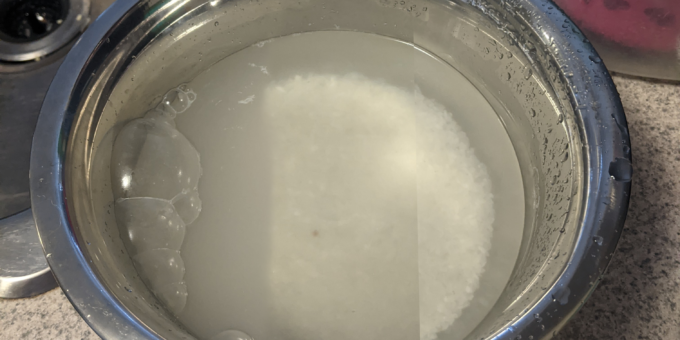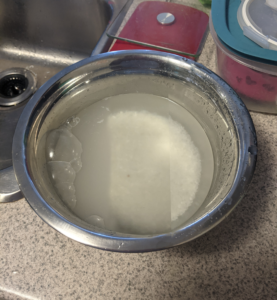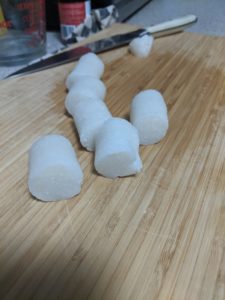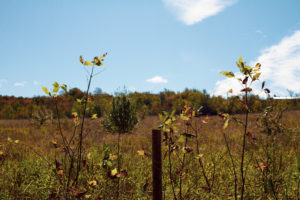
This morning I caught up on some of my YouTube subscriptions from the past few weeks, including this video from Fairyland Cottage which is a list of items no longer purchased to save money and reduce waste. This made me think of what drives me personally to make things rather than buy them. Often, we’re not actually saving much or any money as staples can be purchased very inexpensively, thanks to subsidies and low-paid labour. A major value I find in DIY is the satisfaction of using my labour for myself or my loved ones – putting care and attention into something just because I want to and not because someone told me to.
Learning Something New
This weekend I tried to make garaetteok from scratch. There are no Korean stores nearby. I would have to borrow a car, or take public transit at a time when COVID-19 cases are very high in our city to purchase the pre-made item which I am sure would be wrapped in excessive packaging, none of which sounded like fun.
Let me be clear: I’m not judging people who choose to buy things rather than make them. Often, there is no real choice as folks are forced to work long hours with long commutes to survive. They should have delicious food too. In my case, I had the luxury of some leisure time so I decided to trade my time and labour for some chewy rice cakes.
The recipe takes hours to execute. Firstly, the rice needs to be washed very well, until the water runs clear, and then left to soak.

Eight to twelve hours later, the rice can be strained and ground. I tired first in my small food processor, and then in my blender. No real luck. It was far too coarse. Later I read that an option is to add some water and make the dough in the blender rather than just focusing on making the flour. Oh well, next time.
Once you have flour, you can add water to make a dough. I thought I was adding just a small portion of the recommended volume, but I ended up with soup. Due to the nature of the process (or at least how I approached it), I couldn’t just add more flour because there was none left. This is where the course flour came in handy – I was able to strain though a fine mesh sieve, but washed off a lot of the good stuff that contributes the the chewy texture.
After all this, I decided to just steam it in the microwave. I put it in for the recommended period expecting to stir it and put it back in. However, it was rock hard. I took it out and attempted to pound it, as the next step would have been, but in the end it seemed the best course of action would be to just try and roll it into the final shape.
The result was pretty grainy, but not too bad. It was late by the time I got to this, so I froze it for future enjoyment.
I felt so proud to have learned this new skill, even if it would take a lot of practice to become proficient. I had taken raw rice and transformed it into something chewy and delicious with my own hands.
How we value our time and labour
I have a pretty high hourly wage as an engineer. If I applied this hourly wage to the rice cakes, these would be astronomically expensive treats.
I strongly disagree with this method of how to value our time. I think it’s useful if someone has an issue with spending more money than they make because it can point to how unsustainable that habit is. As a general indicator of how valuable our time is, I see hourly wages as a construct of how our labour is valued under capitalism.
I don’t think I work much harder than our custodian, but I probably make three times his wages. Sure, I have more responsibility and liability, but in most situations this job is a less all encompassing source of stress than my previous jobs as a cashier or line cook. Don’t get me started on the idea that my education earned me this: schools should be free and educated immigrants are funneled into low paying jobs regardless of their education or experience.
I go to my job each workday because I think my work is important and someone has to do it, but mostly because I need the money to buy things to survive. But what if I wanted to spend some of my time learning to make a dish from scratch and reducing my dependence on all the steps in the supply chain and inherent exploitation therein?
This is part of the reason we are looking to simplify. I’m an anti-capitalist, and H is a bit of a misanthrope. We both want to do less paid work and enjoy a simpler life, recognizing a simple life doesn’t mean easier or less labour. But we can take pride that we reap the fruits of our labour rather than handing them off to others in the form of paid work. That’s the hope, anyways.
And by the way, the garaetteok were delicious.





